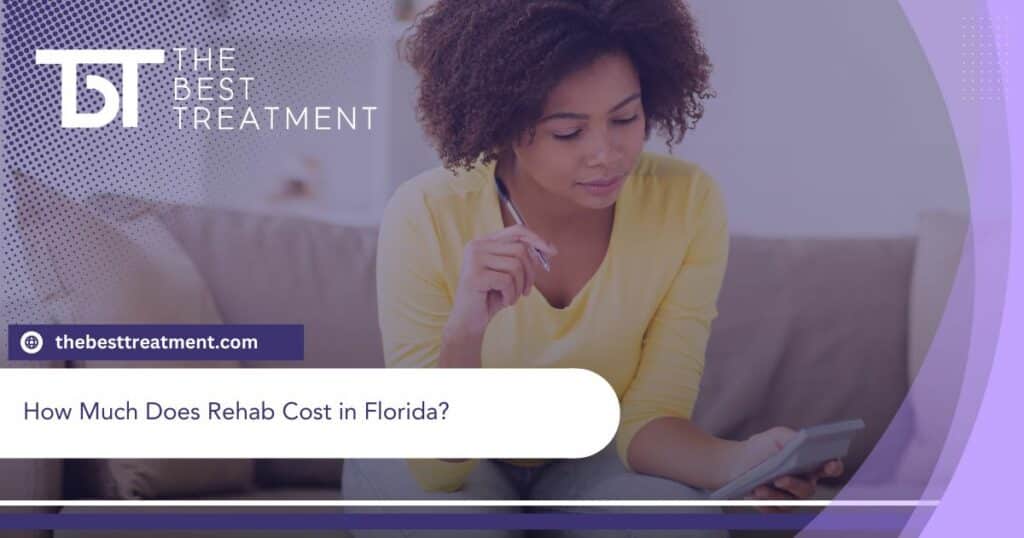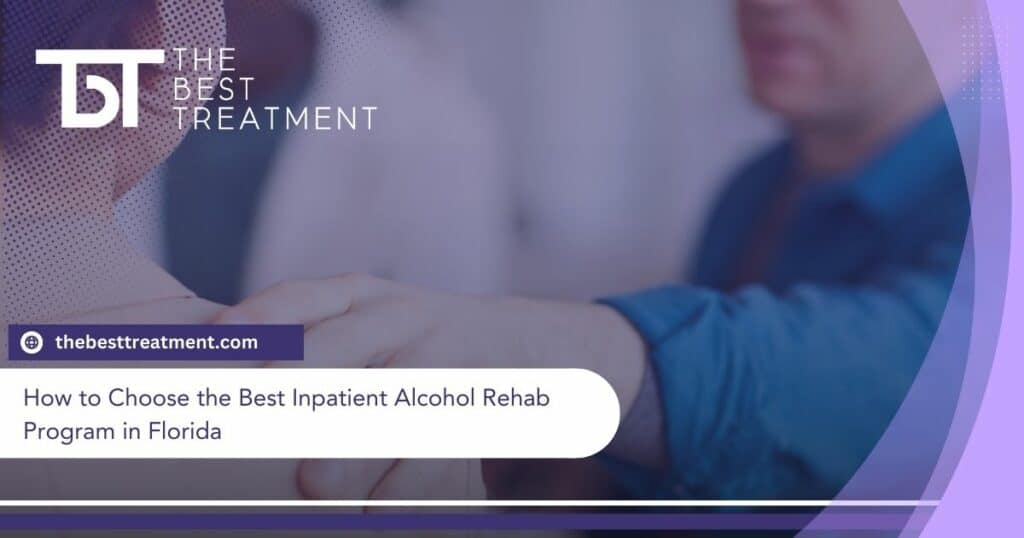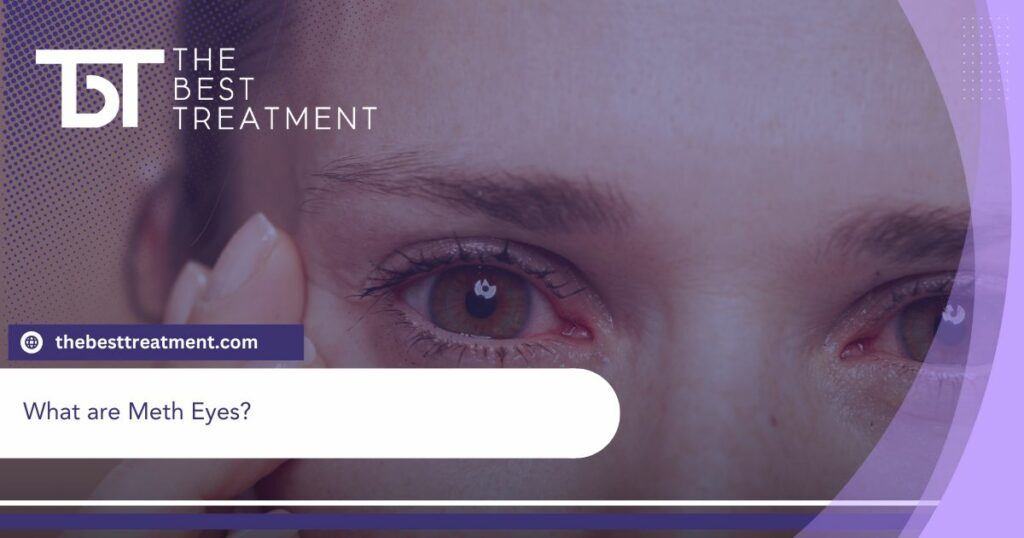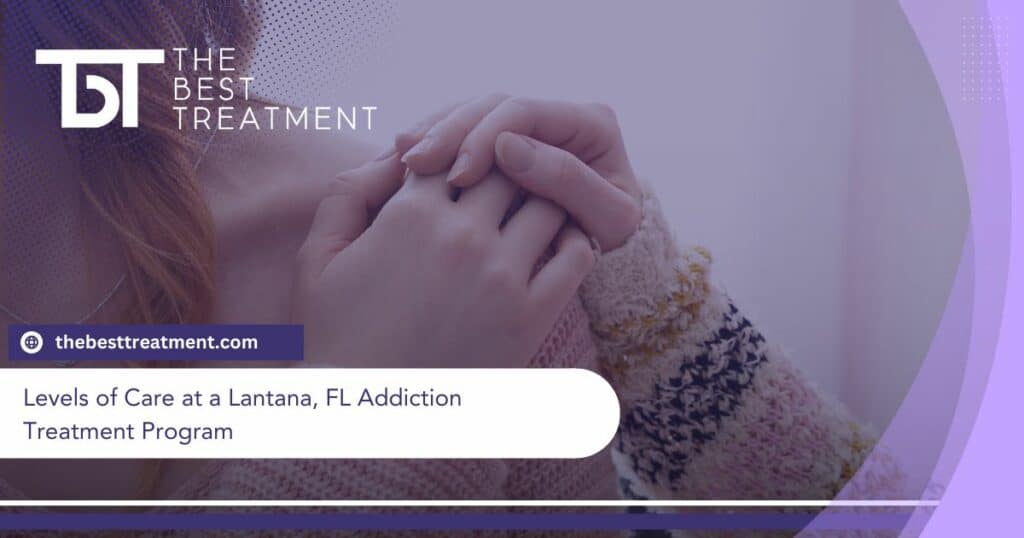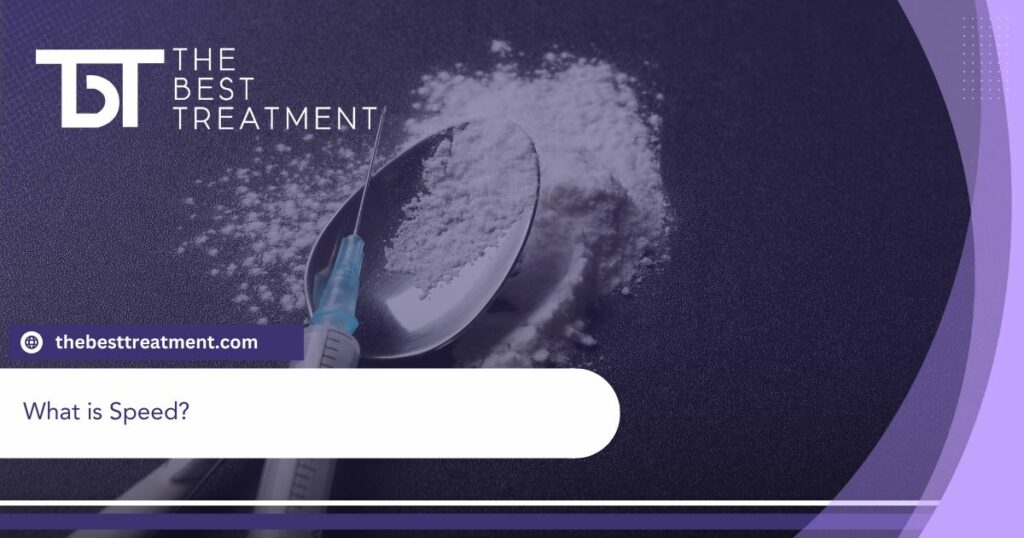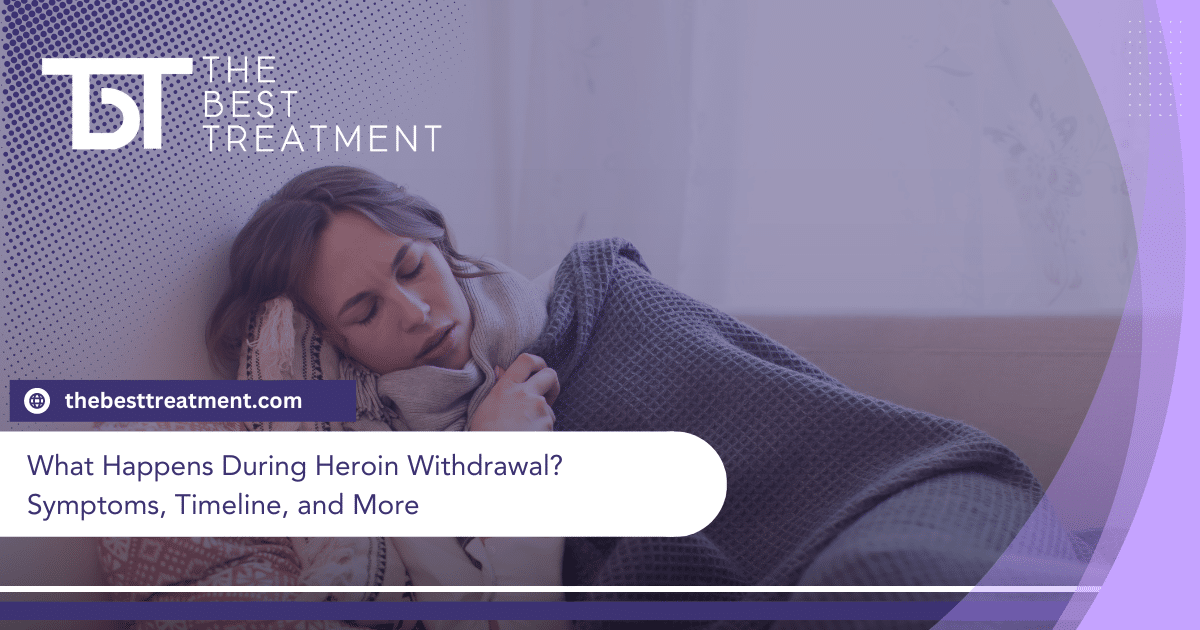Table of Contents
Heroin is a potent, illicit opioid. Users smoke, inject, or snort it. Heroin is highly addictive, and using it for even short periods can lead to physical dependence.
Heroin addiction is a complex condition. It can be very challenging to overcome heroin addiction. However, comprehensive treatment programs can provide the support and treatment people need to put heroin abuse in the past.
Comprehensive addiction treatment programs provide care for your body, mind, and spirit. In most cases, people begin recovery from heroin addiction by participating in a heroin detox program.
Detoxing from heroin requires medical supervision, care, and support. Many people experience debilitating withdrawal symptoms that can lead to relapse. Medical and emotional support can help people manage withdrawal and have a safe, complete detox.
This article will detail what happens during heroin withdrawal. You will learn about the symptoms and timeline of heroin withdrawal.
Reach out to The Best Treatment specialists now to explore our supportive detox and treatment programs. Contact us with questions or to schedule an intake assessment.
Heroin Withdrawal: An Overview
When you use heroin, it binds to opioid receptors in your brain. These receptors are in areas of your brain related to pleasure, emotional regulation, and pain control. People experience euphoria–an intense rush of pleasure and contentment–when using heroin.
The intense pleasure from heroin can make people want to use it more. Over time, your body can adjust to the amount of heroin you use. You might find that it takes more heroin to give you the effects you want. This is called “tolerance.” Tolerance is an early sign of physical dependence.
Using heroin over and over again can lead to physical dependence and addiction. When you become addicted to heroin, your body can’t function without it.
If you stop using heroin after developing physical dependence on it, you will experience withdrawal symptoms. Heroin withdrawal usually includes emotional and physical symptoms. Heroin withdrawal is often so uncomfortable that people relapse (use heroin again) before detox is complete.
Heroin Withdrawal Symptoms
The severity of your withdrawal symptoms depends on how much heroin you use, your general health, and other personal factors. Common opioid withdrawal symptoms include:
- Chills
- Muscle aches
- Excessive sweating
- Muscle spasms
- Stomach cramps
- Elevated heart rate
- Anxiety
- Insomnia
- Depression
- Nausea
- Vomiting
- Fatigue
- Intense cravings for heroin
Your withdrawal symptoms will likely change over the course of your detox period.
Heroin withdrawal isn’t usually life-threatening. However, intense cravings and discomfort can increase your risk of relapse before detox is complete. Relapsing during detox is more likely to lead to a life-threatening overdose.
It is essential to have support, supervision, and treatment during detox to avoid a deadly overdose.
Heroin Withdrawal Timeline
Each person has their own experiences during detox and withdrawal. However, opioid withdrawal typically follows a predictable timeline.
First 24 hours
Around 6 hours after the last dose of heroin, you may begin to experience acute withdrawal symptoms. These include:
- Body aches
- Tremors
- Anxiety
- Insomnia
- Intense cravings
The risk of relapse is high at this point. You must seek treatment from a medically supervised detox during this stage of withdrawal.
24-72 hours
Your physical symptoms will likely get worse. Many people experience their worst symptoms around the third day of detox. Nausea and vomiting can make you feel miserable and cause dehydration.
Day 4-7
Your physical symptoms may begin to improve toward the end of the first week. However, your emotional symptoms may intensify. Depression, anxiety, and insomnia are common.
1 week-3 months
Physical symptoms continue to improve. However, depression, anxiety, insomnia, and cravings can linger for weeks or even months.
A medical detox program can give you the treatment and care you need to manage the symptoms of heroin withdrawal. Then, you must participate in a treatment program that can provide you with the ongoing support and care you need to thrive in recovery.
How Long Does Heroin Withdrawal Last?
Many factors affect how long your opioid withdrawal period may last. Acute withdrawal symptoms may begin quickly and last for about a week. Some people may experience ongoing cravings and other symptoms for months after they stop using heroin.
Some of the factors that can impact how long your withdrawal symptoms last include:
- How long you used heroin
- How you used heroin–injected, snorted, or smoked
- The amount of heroin you used
- Your physical and mental health
- Your history of substance use, including opioid withdrawal
Sometimes, people develop a condition called Post Acute Withdrawal Syndrome (PAWS). When people develop PAWS, they experience heroin withdrawal symptoms for months or even years. Common symptoms of PAWS include:
- Irritability
- Insomnia
- Depression
- Anxiety
- Cravings
People who develop PAWS often need ongoing treatment and support to avoid withdrawal and stay focused on long-term addiction recovery.
Find Help Now
Heroin abuse can change your brain chemistry. People who struggle with heroin addiction often require medication-assisted treatment programs and ongoing support to achieve long-term recovery.
If you or someone you love lives with heroin abuse or addiction, you are not alone. Contact The Best Treatment specialists to explore our supportive treatment programs or schedule an intake assessment.
Medically Reviewed: September 25, 2019

All of the information on this page has been reviewed and verified by a certified addiction professional.





